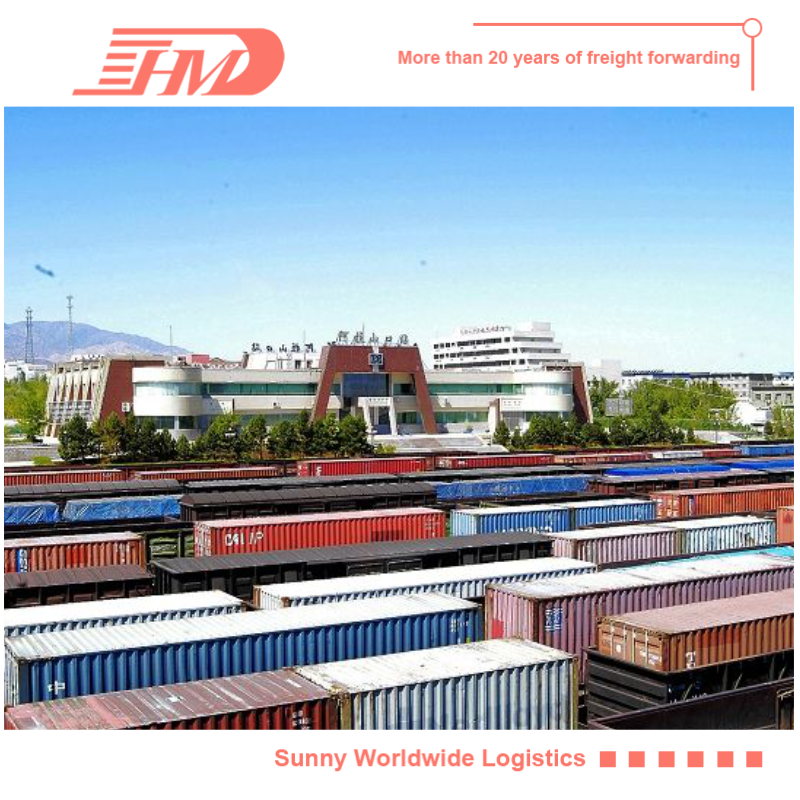Erupt! Many ports around the world are deeply affected by the epidemic, and crew changes are severe
- Author:Josie
- Source:Souair
- Release Date:2020-08-20
And the shift policy of major ports around the world is like turning the pages of a book.
Therefore, the crew must reconfirm in advance the port’s epidemic prevention and control situation and the latest shift policy.
For example, recently, a new round of Covid-19 outbreak occurred at the Hong Kong terminal. Since the suspension of shift operations on July 29, the start of crew shifts has become even more distant;
In addition, 15 Filipino crew members on a cargo ship in Singapore were diagnosed some time ago.
——The rebound of the epidemic in the ports of the two places has once again plunged Asian ports into a shift crisis...
Erupt! Many ports around the world are deeply affected by the epidemic, and crew changes are severe! ... other ports, hold on!
On August 16, the Centre for Health Protection of the Hong Kong Department of Health issued a notice stating that there were 74 new confirmed cases in Hong Kong, of which nearly half came from the Kwai Tsing Container Terminal, including 8 from the Indian Resistance Port, 1 from Russia and 1 from Ethiopia. Port worker, 1 Russian seaman.
As of Sunday, 55 container terminal employees at Kwai Tsing Container Terminals have been confirmed to have been infected, of which 41 confirmed cases were from Wang Kee Port Operations Co., Ltd.
According to the person in charge of the infectious disease department of the Health Protection Center, the main problem lies in the lounge shared by dock workers, where the virus has accelerated its spread.
——This has aroused the high attention and vigilance of Hong Kong residents on the prevention and control of the epidemic in the shipping industry, and I am afraid it will affect the crew shift policy in Hong Kong.
Erupt! Many ports around the world are deeply affected by the epidemic, and crew changes are severe! ... other ports, hold on!
It is understood that the Health Protection Center of the Hong Kong Department of Health has sent more than 100 Hongji Port employees to the quarantine area.
At the same time, two batches of more than 8,000 test reagents have been distributed to terminal operators, and they have been distributed to employees for virus testing. About 3,600 new coronavirus test reagents have been distributed to employees last Wednesday; the second batch of about 4,500 The test reagents were also distributed to the operators on August 16, and the operators will continue to distribute them to other frontline and logistics staff for comprehensive testing.
As testing has not yet been completed, there is no relevant statistics on how many people are infected in this group. So far, at least a few employees of each of the more than 10 subcontracting companies on the terminal have tested positive for the coronavirus.

According to the Health Protection Center of the Hong Kong Department of Health, the center tried to discuss whether to close the terminal, but was strongly opposed by the local trade union. It believed that the Kwai Tsing Container Terminal is located in the northwest of Hong Kong. There are 9 container terminals in total, and the total number of containers handled each year exceeds 20 million TEU is an important trading material import hub in Hong Kong, which plays a very important role in safeguarding Hong Kong's cold chain supply and materials.
The relevant authorities in Hong Kong have not provided an explanation for the reason why the terminal has become an area with a high incidence of new crown pneumonia infection. Some scholars and epidemic prevention experts believe that the quarantine-free crew and frozen meat products in the previous period may be the source of the virus.
Erupt! Many ports around the world are deeply affected by the epidemic, and crew changes are severe! ... other ports, hold on!
Hong Kong’s recent epidemic prevention and control situation is volatile. Some people in Hong Kong also blame the rebound of the epidemic in Hong Kong on the quarantine exemption policy for crew members some time ago. The shift of crew members has become a target of public criticism. Starting July 29, the Hong Kong Special Administrative Region government has decided to suspend all passenger ships and non-exempt ships. The crew of the cargo ships handling cargo loading and unloading in the port will be changed until the COVID-19 epidemic in Hong Kong is under control.
Now it seems that the concentrated outbreak of the Hong Kong terminal has made Hong Kong's crew shift policy seem hopeless...
Erupt! Many ports around the world are deeply affected by the epidemic, and crew changes are severe! ... other ports, hold on!
Another Asian port, Singapore Port, is also facing the same situation. On August 15th, the Ministry of Health of Singapore issued a statement announcing the latest epidemic related to the port. According to the report, a total of 15 Filipino crew members tested positive for COVID-19 on a ship arriving in Singapore.
Both Singapore Port and Hong Kong Port rank among the most important ports in Asia and are also important exports for crew shifts. However, the recent outbreak of the pandemic crisis at the two major ports seems to make it impossible to resume crew shifts at the two major ports.
In addition, according to the latest news, China’s Lianyungang Port and Dalian Port have also seen new confirmed cases of imported crew members. Among them, 3 cases were confirmed in Lianyungang, all of which were crew members of Chinese nationality; 1 case was confirmed in Port of Dalian, and they were all members of Filipino nationality.
This has also put a lot of pressure on crew shift operations in other ports in Asia. Therefore, when the shipping company and crew are currently changing shifts, they should pay attention to strictly abide by the relevant local policies and regulations, because a slight difference will force these shift channels to stop

Therefore, the crew must reconfirm in advance the port’s epidemic prevention and control situation and the latest shift policy.
For example, recently, a new round of Covid-19 outbreak occurred at the Hong Kong terminal. Since the suspension of shift operations on July 29, the start of crew shifts has become even more distant;
In addition, 15 Filipino crew members on a cargo ship in Singapore were diagnosed some time ago.
——The rebound of the epidemic in the ports of the two places has once again plunged Asian ports into a shift crisis...
Erupt! Many ports around the world are deeply affected by the epidemic, and crew changes are severe! ... other ports, hold on!
On August 16, the Centre for Health Protection of the Hong Kong Department of Health issued a notice stating that there were 74 new confirmed cases in Hong Kong, of which nearly half came from the Kwai Tsing Container Terminal, including 8 from the Indian Resistance Port, 1 from Russia and 1 from Ethiopia. Port worker, 1 Russian seaman.
As of Sunday, 55 container terminal employees at Kwai Tsing Container Terminals have been confirmed to have been infected, of which 41 confirmed cases were from Wang Kee Port Operations Co., Ltd.
According to the person in charge of the infectious disease department of the Health Protection Center, the main problem lies in the lounge shared by dock workers, where the virus has accelerated its spread.
——This has aroused the high attention and vigilance of Hong Kong residents on the prevention and control of the epidemic in the shipping industry, and I am afraid it will affect the crew shift policy in Hong Kong.
Erupt! Many ports around the world are deeply affected by the epidemic, and crew changes are severe! ... other ports, hold on!
It is understood that the Health Protection Center of the Hong Kong Department of Health has sent more than 100 Hongji Port employees to the quarantine area.
At the same time, two batches of more than 8,000 test reagents have been distributed to terminal operators, and they have been distributed to employees for virus testing. About 3,600 new coronavirus test reagents have been distributed to employees last Wednesday; the second batch of about 4,500 The test reagents were also distributed to the operators on August 16, and the operators will continue to distribute them to other frontline and logistics staff for comprehensive testing.
As testing has not yet been completed, there is no relevant statistics on how many people are infected in this group. So far, at least a few employees of each of the more than 10 subcontracting companies on the terminal have tested positive for the coronavirus.

According to the Health Protection Center of the Hong Kong Department of Health, the center tried to discuss whether to close the terminal, but was strongly opposed by the local trade union. It believed that the Kwai Tsing Container Terminal is located in the northwest of Hong Kong. There are 9 container terminals in total, and the total number of containers handled each year exceeds 20 million TEU is an important trading material import hub in Hong Kong, which plays a very important role in safeguarding Hong Kong's cold chain supply and materials.
The relevant authorities in Hong Kong have not provided an explanation for the reason why the terminal has become an area with a high incidence of new crown pneumonia infection. Some scholars and epidemic prevention experts believe that the quarantine-free crew and frozen meat products in the previous period may be the source of the virus.
Erupt! Many ports around the world are deeply affected by the epidemic, and crew changes are severe! ... other ports, hold on!
Hong Kong’s recent epidemic prevention and control situation is volatile. Some people in Hong Kong also blame the rebound of the epidemic in Hong Kong on the quarantine exemption policy for crew members some time ago. The shift of crew members has become a target of public criticism. Starting July 29, the Hong Kong Special Administrative Region government has decided to suspend all passenger ships and non-exempt ships. The crew of the cargo ships handling cargo loading and unloading in the port will be changed until the COVID-19 epidemic in Hong Kong is under control.
Now it seems that the concentrated outbreak of the Hong Kong terminal has made Hong Kong's crew shift policy seem hopeless...
Erupt! Many ports around the world are deeply affected by the epidemic, and crew changes are severe! ... other ports, hold on!
Another Asian port, Singapore Port, is also facing the same situation. On August 15th, the Ministry of Health of Singapore issued a statement announcing the latest epidemic related to the port. According to the report, a total of 15 Filipino crew members tested positive for COVID-19 on a ship arriving in Singapore.
Both Singapore Port and Hong Kong Port rank among the most important ports in Asia and are also important exports for crew shifts. However, the recent outbreak of the pandemic crisis at the two major ports seems to make it impossible to resume crew shifts at the two major ports.
In addition, according to the latest news, China’s Lianyungang Port and Dalian Port have also seen new confirmed cases of imported crew members. Among them, 3 cases were confirmed in Lianyungang, all of which were crew members of Chinese nationality; 1 case was confirmed in Port of Dalian, and they were all members of Filipino nationality.
This has also put a lot of pressure on crew shift operations in other ports in Asia. Therefore, when the shipping company and crew are currently changing shifts, they should pay attention to strictly abide by the relevant local policies and regulations, because a slight difference will force these shift channels to stop

